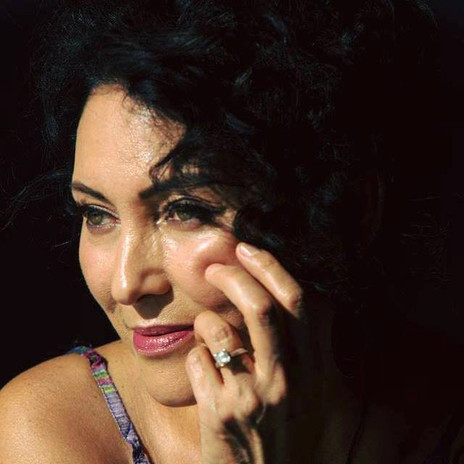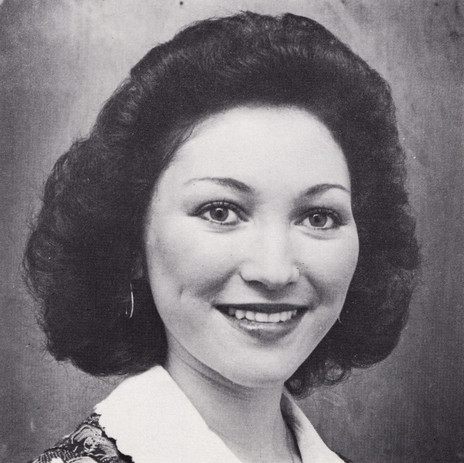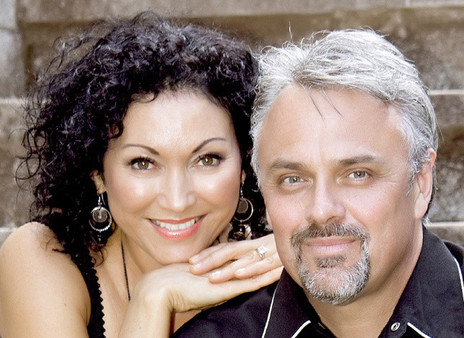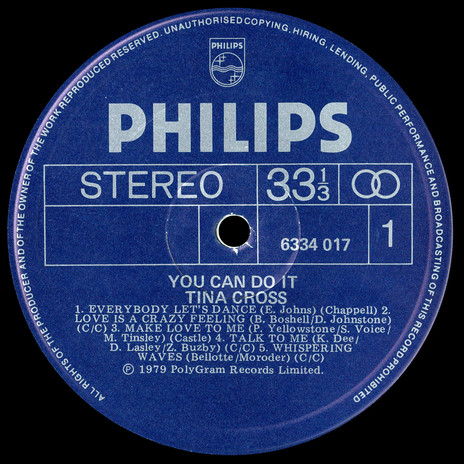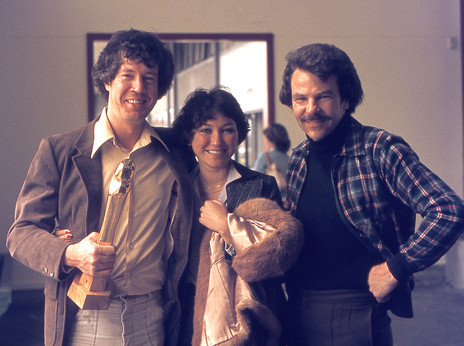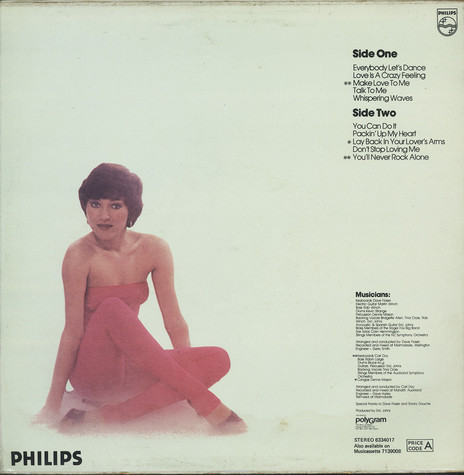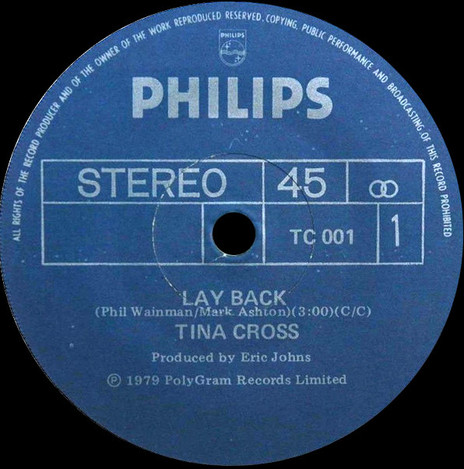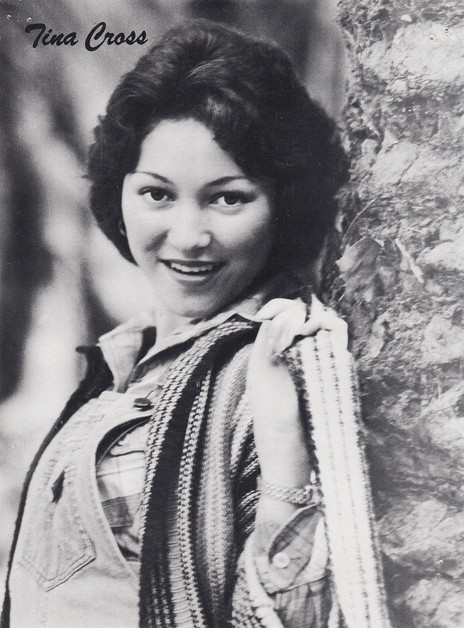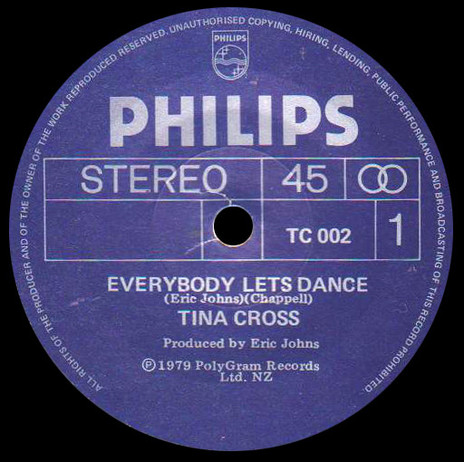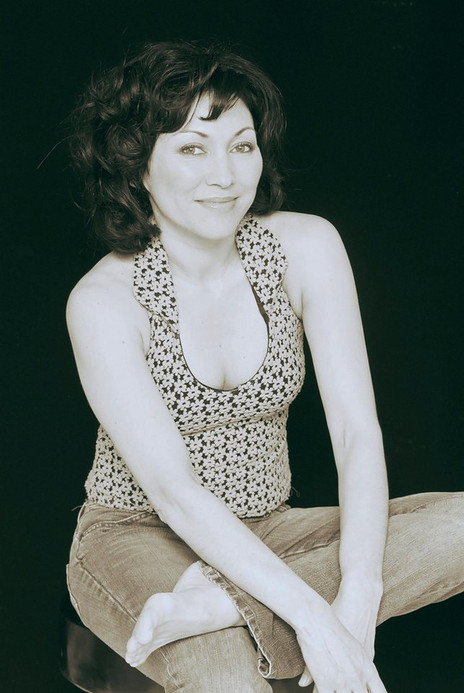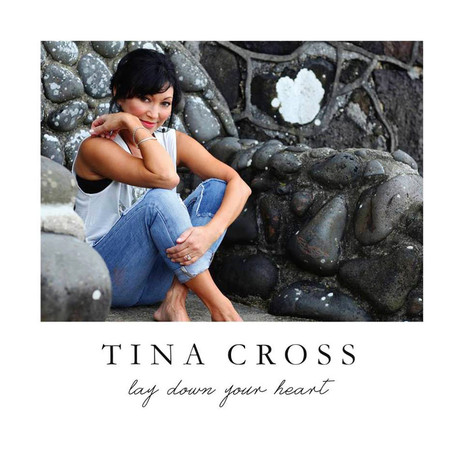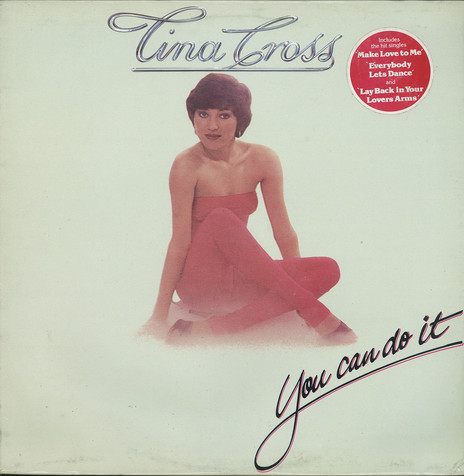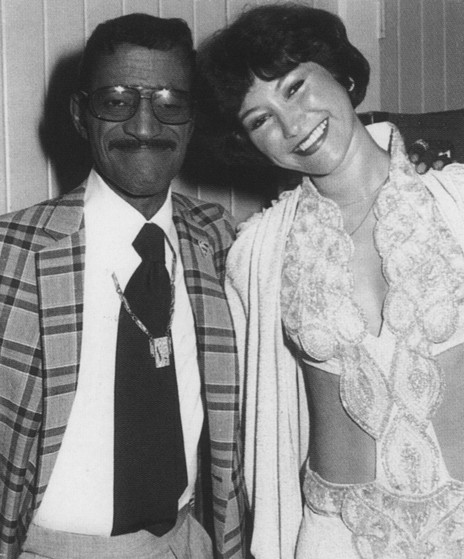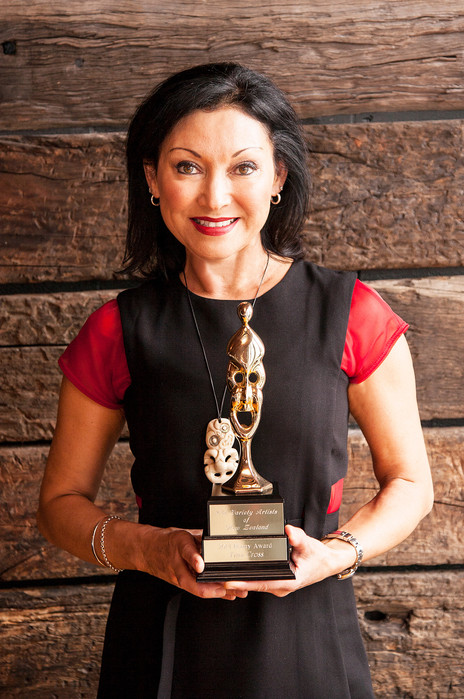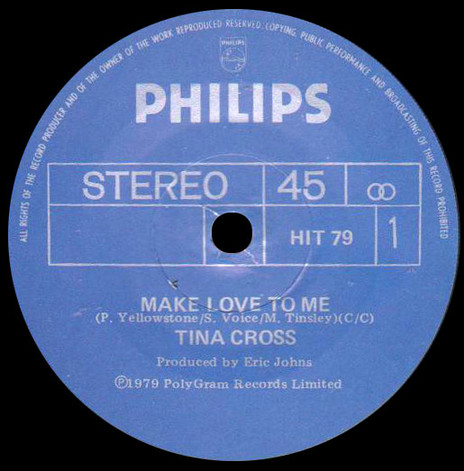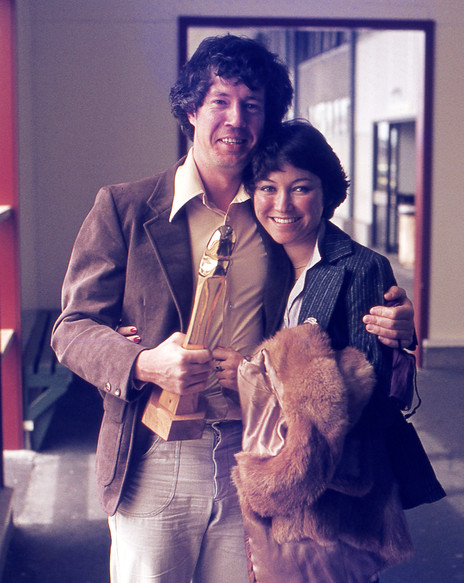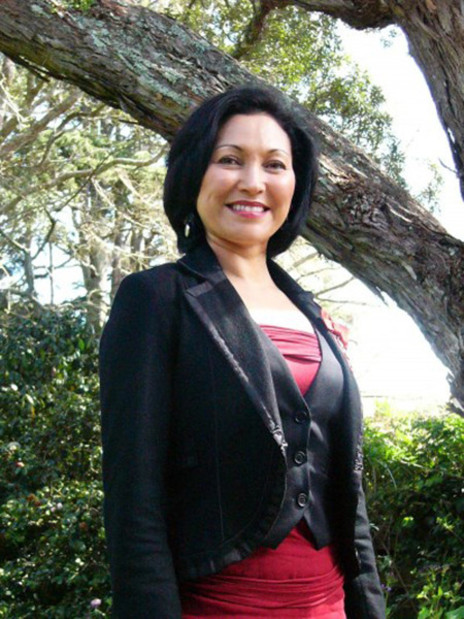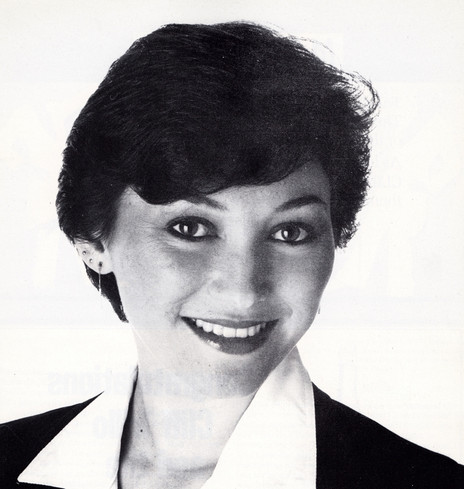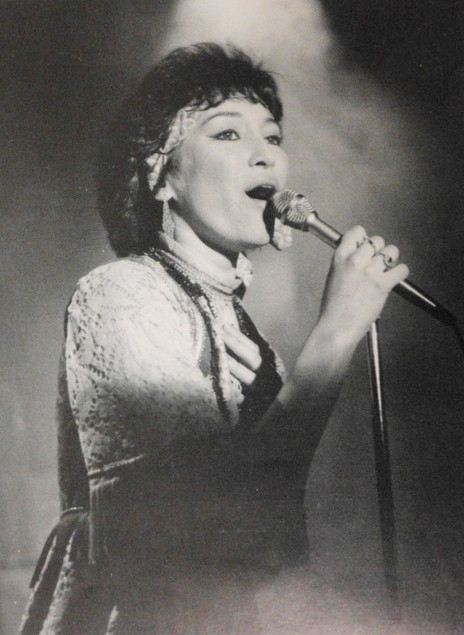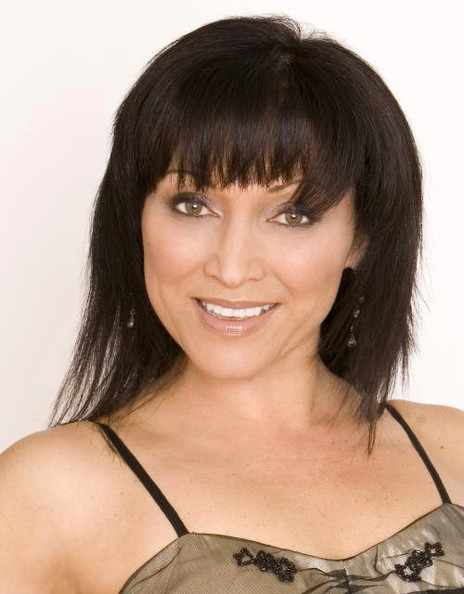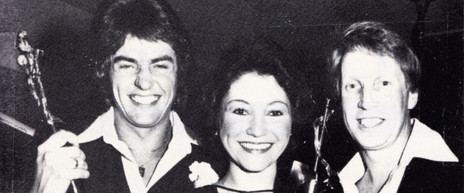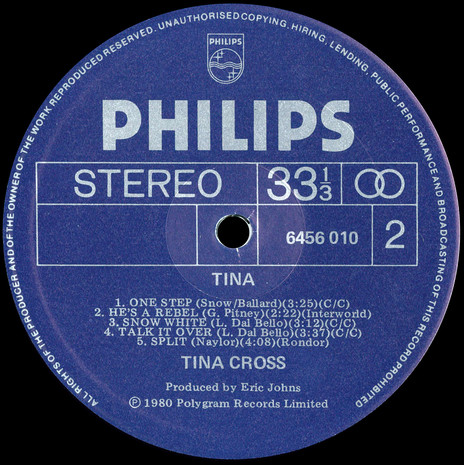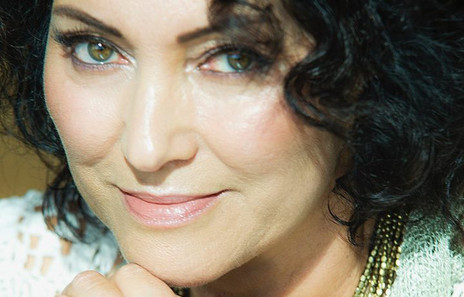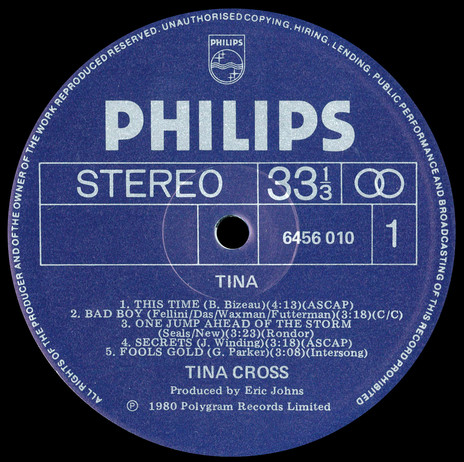In 1974, and living back in Otara, her singing chops earned her new friends at Penrose High School when she approached a younger student to compliment her performance at a school assembly. “I can sing too,’’ added Cross. It was to be a life-changing conversation.
1979 was her breakthrough year with the release of her debut album You Can Do It.
Her new friend, future 80s pop singer Kim Hart, encouraged Cross to audition for the school’s musical productions with their band, Chalkdust, where the pair ended up sharing singing duties. At some point the band met Tokoroa funk group (and one of Dalvanius’s backing bands), Collision, who were practising in a building next to the school.
In 1975, the group auditioned for television talent show Opportunity Knocks. While they missed out, the producers saw enough in 16-year-old Cross to offer her a one-year contract. Still a schoolgirl, Cross learned her craft in a studio setting rather than the pub circuit and was soon presenting herself to a national audience via popular television shows such as Smile and Once More With Feeling.
Further opportunities were in the offing when she joined promoter and performer Lew Pryme’s stable of artists at his agency Fuller’s Entertainment Bureau, which included Rob Guest and Mark Williams. All the same, Cross still saw singing as an interesting prelude to a social work career, even after she signed to PolyGram and hit the Auckland club circuit (helped by her parents, who bought her a car). Pryme also began including her in tours by acts as varied as Sammy Davis Jnr and Steptoe and Son.
In 1977 Cross spent some time as a dancer on the television show, Top of the World. She also appeared on several episodes of Ready to Roll and won the rising star award at the Entertainer of the Year awards.
1979 was her breakthrough year, with the release of her debut album You Can Do It. Without any songwriting experience, her material was selected by PolyGram, whose enthusiasm for the project is clear from the team they assembled, with production duties being handed to Heatwave guitarist Eric Johns, and a backing band featuring the likes of Bridgette Allen, Colin Hemmingson and the Winch brothers.
Her exuberant performance of the Carl Doy-penned song ‘Nothing But Dreams’ won the international Pacific Song Contest.
Two singles followed, ‘Make Love To Me’ and ‘Everybody Let’s Dance’. The latter, written by Johns, became the album’s most successful single, reaching No.13 on the Top 20 and staying in the charts for 13 weeks.
Her popularity increased exponentially later that year when her exuberant performance of the Carl Doy-penned song ‘Nothing But Dreams’ won the international Pacific Song Contest. Broadcast live across the Pacific to an enormous audience, the moment gave her a high profile throughout the region. The track was released as a single in December 1979.
Cross was then named Most Promising Female Vocalist at the New Zealand Music Awards and given a spot on the 1980 Royal Command Performance. She represented New Zealand again at the 1980 Pacific Song Contest, performing ‘Once Again With You’ in a duet with Derek Metzger; they took second place.
Cross also appeared in that year’s Telethon – a nationwide, televised fundraising event. She agreed to mime her song only to find the version played featured the original guide vocal by another singer.
A follow-up album was then needed, which was great news until she heard of her label’s plans. Disco, they decided, was dead, and so the sultry girl next door was recast as Tina X (the album title). The album featured New Zealand musicians such as Frank Gibson Jr, Dave MacRae and Bruce Lynch. But the shift to new wave misfired and the album sank without trace.
Time though was on Cross’s side and she headed to Australia for another crack. Her first Australian release was ‘Losing Your Touch’ (recorded in Sydney and released on Laser) in 1982 then two years later she formed Koo De Tah with another immigrant, Russian musician Leon Burger, whom she had previously met back in New Zealand.
Their second single, the synth-pop ‘Too Young For Promises’, came out in 1985, reaching No.6 on the national chart while remaining the highest selling single in Melbourne for several weeks. It was also released in New Zealand, cracking the Top 50, and remains Cross’s most successful recording.
The duo’s self-titled album came out in 1986, but they broke up the following year. Cross launched a corporate cabaret act and toured India and Asia. She returned to Auckland in 1990 with her husband, and had two children.
In 1992 Cross returned to the nation’s living rooms via a performance on the theme for television soap, Shortland Street. But if her days as a pop star seemed over, Cross once again demonstrated her versatility by jumping into musical theatre.
In 1995 she appeared in touring productions of the Rocky Horror Show and Cats. Her impact was such that was named Best Theatrical Performer.
It wasn’t an easy transition. Appearing as Columbia in Rocky Horror meant eight shows a week and toward the end of the run she was already into rehearsals for Cats (as Grizzabella). The workload got to the point where she carried a stretcher bed to take advantage of whatever breaks were on offer to get some sleep.
In an interview published in the Sunday Star-Times (April 2, 1995) she said: “You take a deep breath at the start of the week and hope some voice comes out at the end of it …”
She did manage one (literal) break though: while heading back to her North Shore home on opening night, her car was hit by a drunk driver. She received two sprained ribs, stitches and bruises. The accident meant she had to sit out the rest of the week’s shows.
A Carl Doy-produced album of duets with fellow cast members quickly followed.
In 2005 she co-founded harmony group The Ladykillers with fellow vocalists Suzanne Lynch and Jackie Clark.
Now in high demand, Cross rattled off major roles in shows like Once Were Warriors, (Michael Jackson’s) Sisterella, Chicago, Boogie Nights and Miss Saigon, while also trying her hand as producer for The World Goes Round.
In 2005 she co-founded harmony group The Lady Killers with fellow vocalists Suzanne Lynch and Jackie Clarke; Taisha and Annie Crummer have also been part of the group. The Lady Killers released an album, Black is Back, in 2009.
Cross’s career and charity work was recognised in 2007, when she was named as an Officer of the New Zealand Order of Merit for services to music.
Her career stumbled at the age of 45 when she underwent early menopause and her voice began to fail her. Talking to the Australian Women’s Weekly (September 2014) Cross described the impact that had: “For musical theatre roles, you need vocal stamina and I couldn’t trust my voice anymore. I suddenly thought: ‘What the hell am I going to do if I can’t sing any more? I was on the verge of giving up my career.’” But it opened up the time to begin experimenting with songwriting: “I was trying to find my voice and my way back to being the confident performer I had always been.”
She described the process as daunting. While she’d made a career out of performing characters, she now had to front as herself. “[But] I’ve now got the courage to say: ‘Judge my songs. Hate them or love them, this is what I sound like as an original artist.’”
Her first song, ‘Gavie Boy’ (in tribute to a friend who had died of cancer) came as a revelation. Cross had always assumed she would need to lock herself away way and focus completely on songwriting as a craft; instead she found melodies could pop into her head at any time and anywhere.
Songs began to pour out and in 2014, age 55, she released Lay Down Your Heart, her first album of original material. (One song was co-written with her son Sean Sullivan, and another with her producer Barbara Griffin.) Shortly after the album came out Cross received a Benny Award from the Variety Artists Club of New Zealand in recognition of her ongoing career.
One of the tracks, ‘Walk Away’, dealt with domestic abuse and was inspired by her performance in the Once Were Warriors musical. It was then adopted by Women’s Refuge, an organisation she continues to support along with a number of other social welfare agencies.
